Fortunately, my weeks of testing the XM6 have demonstrated that Sony’s learned from its mistakes and is ready to take the throne with some of the best noise-canceling headphones, a pair that may, in fact, be the best we’ve ever seen. And now that their release date is here, it’s the perfect time to decide whether or not you need them.
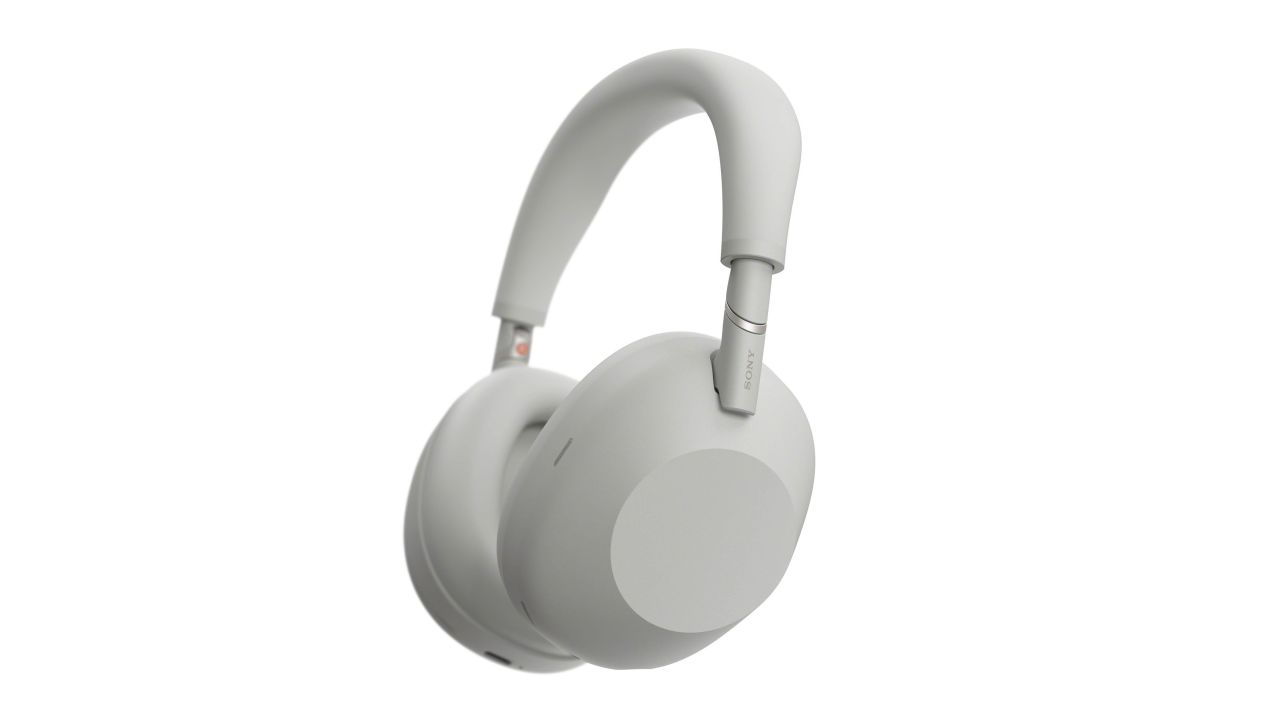
The XM6 are the latest version of Sony’s noise-canceling over-ear headphones and feature a return to the folding design that users loved about the XM4.
What I liked about them
Phenomenal audio quality
No matter what I threw at the Sony WH-1000XM6, these headphones delivered fantastic sound. As my playlist shuffled between the warm, throwback hip-hop sounds of Camp Lo’s “Luchini” to Rob Zombie’s groove metal vibes on “Never Gonna Stop” and then Kesha’s electro-pop banger “Joyride,” the proverbial record never scratched once. That’s likely owed to how the new driver units in this year’s model enable richer sound than I’ve heard on other wireless headphones.
Everything from Kesha’s glitched-out warbling to the bass of Camp Lo’s track to Mr. Zombie’s relentless riffs didn’t just sound right; it sounded great. Even albums I’ve been spinning on repeat lately, like Charly Bliss’ “Forever” and Lucy Dacus’ “Forever Is a Feeling” sounded fresh on the XM6. I’m not saying that you should throw out your AirPods Max or Bose QuietComfort Ultra, but I think I’ve got a new default pair for nearly everything I do.
It’s a bit hard to quantify how great the XM6 sound is, but they delivered a terrifically full and vibrant version of Charly Bliss’ “Back There Now,” a bouncy track I’ve listened to on countless other devices. The XM6 also won when I lowered the volume to about 30%, with sturdy bass, perfectly fuzzy guitar riffs and singer Eva Hendricks’ vocals all hitting so well I was reminded about how great the band sounded in concert last year.
The differences in sound quality were a bit less obvious when listening to classical music, as the XM6 only sounded better by the slimmest of margins when I listened to Dvorak’s “Symphony No. 9 in E Minor.” Still, the highs sounded slightly sweeter and the low-end bass was a bit bolder on the XM6 than on the QC Ultra and AirPods Max.
Phenomenal noise cancellation
We always put a lot of time and effort into our product reviews, and that includes truly living with a product like I did with the XM6. I brought them (and their competitors) on a 4.5-hour bus ride from upstate NY to the city, where Sony’s headphones proved the best of the bunch. They were better overall at quieting the chaos around me, including the bus’ air conditioner. Whenever it turned on, the XM6’s new adaptive noise-canceling tech (upgraded from an automatic version) kicked in to erase that sound, something that the AirPods Max couldn’t muffle.
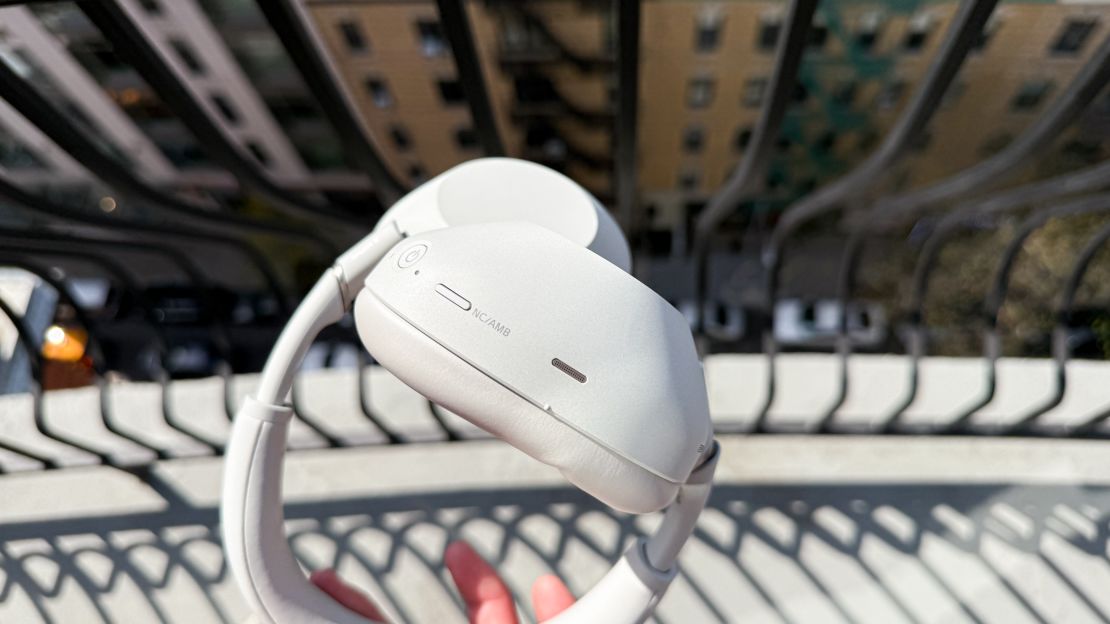
Neither the AirPods Max’s nor the Bose QC Ultra’s active noise cancellation, for example, erased as much of the ambient noise around my home, including my air purifier, washing machine and traffic leaking in from outside. If I had to rank them, I’d say Bose’s ANC is closer to what Sony’s pulling off, and sometimes on par. More often than not, though, the XM6’s noise cancellation proved a notch above. Maybe this is due to how the Sony XM6 have 12 microphones to the eight each that the Bose QuietComfort Ultra Headphones and Apple’s AirPods Max have.
Still, the XM6’s noise cancellation seems more like an iteration than a revolutionary advancement, as they couldn’t silence the sounds of one of my relatives who is always shouting on phone calls. The headphones did their best to lower that noise pollution and made a strong case for keeping them charged. In less stressful settings, the XM6 definitely proved their worth by helping me focus when working from home while there’s construction happening on the floor below my apartment.
A perfectly fitting design
Unlike the XM5 model, the XM6 feature folding hinges that let you wrap the headphones inward to take up less space. This lets you store them in smaller-sized compartments, like their new case (more on that below). These headphones also have supple synthetic leather ear cups that enable a consistently comfortable and snug fit on my head, which is crucial for effective noise-canceling.
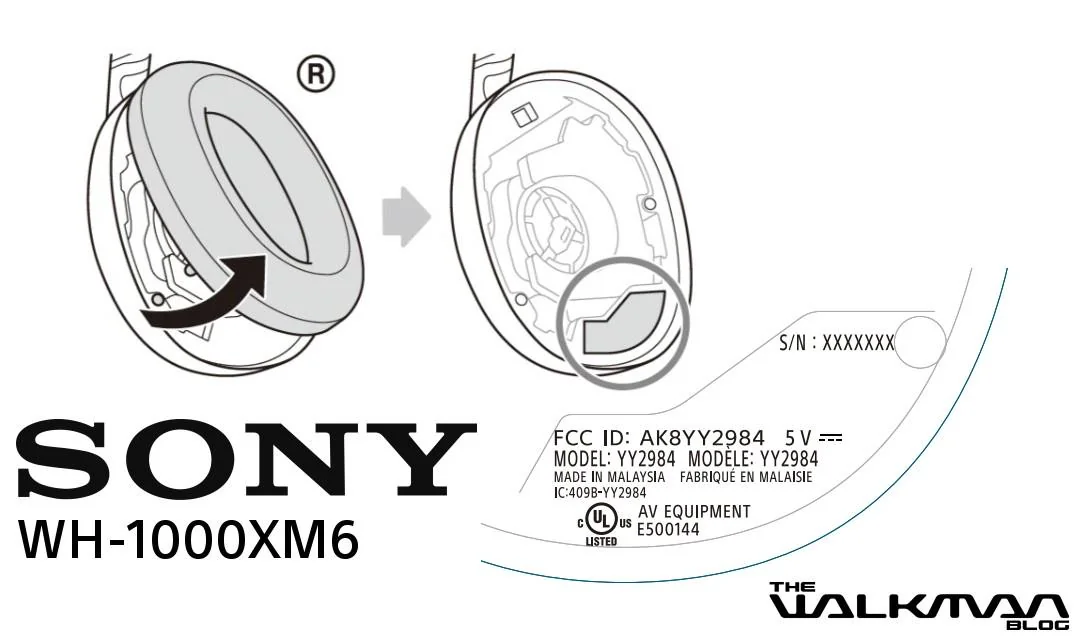
One of my favorite features of the 1000XM6 is that their headband extends much farther upward than the AirPods Max band does, which allows me to comfortably wear a hat while I’m using them, something I literally cannot do with Apple’s over-ear headphones. The XM6 offer similar headroom as the Bose QuietComfort Ultra.
The 1000XM6 also feature a more-asymmetrical design than the previous model, with Sony adjusting the headband to provide another visual cue to signal the front and back sides. The arms are placed more toward the fronts of the cups than the backs, which eliminates some guesswork when you’re trying to put them on correctly.
Beyond the great style and fit, I also love that the Sony XM6 have a regular 1/8-inch headphone jack. Unlike Bose that uses a smaller headphone jack (and Apple’s AirPods Max, which only send wired sound over USB-C), the XM6 are compatible with one of the best and oldest tech standards there is, so you don’t need to worry about adapters if you want to use them with a wired audio source.
The XM6 come in three colors: black, Platinum Silver (basically white) and Midnight Blue.
The best headphones case, period
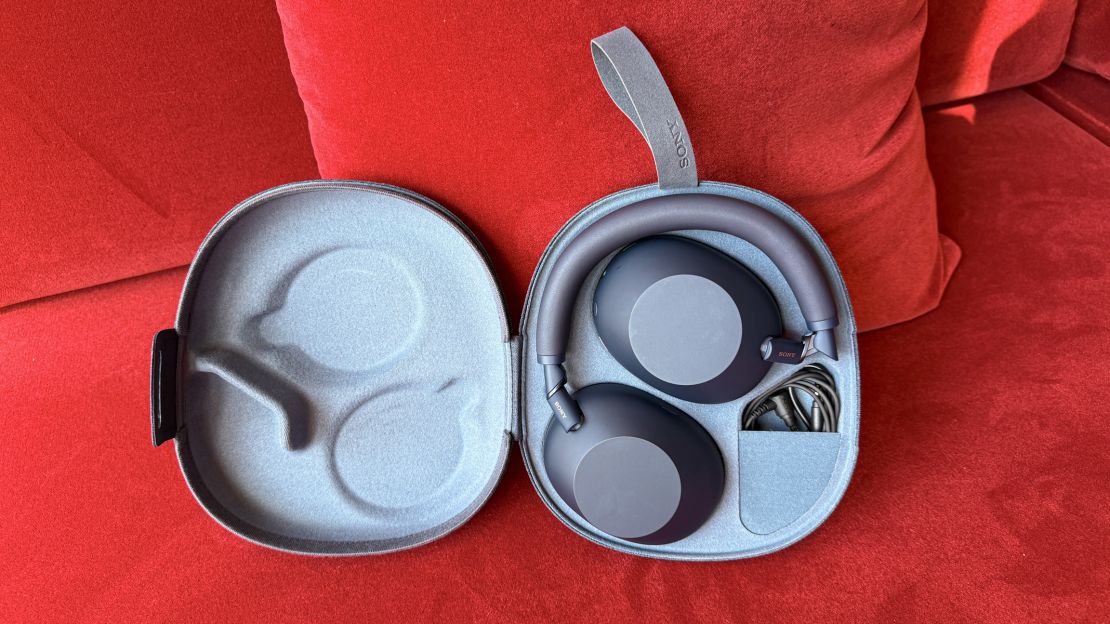
Buying pricey tech means you want to treat it with the care and protection your investment deserves, which is why noise-canceling headphones always come with a case to shield them from the other things in your bag. That said, not all cases are the same, and Sony now makes the best one. The company shrunk down last year’s case and, more importantly, switched from a zipper enclosure to a super-convenient magnetic flap that’s strong enough to stay closed even when I’m shaking it by its hanging loop.
Excellent battery life
Color me amazed: After two weeks of multiple hours of listening every day, I’ve still got 40% battery life left on the XM6. Sony rates the endurance of this newest model as above and ahead of the pack, with up to 40 hours of juice (30 with noise cancellation enabled). That beats Bose’s and Apple’s estimates by six to 10 hours.
Oh, and Sony added the ability to listen to your music wirelessly while the headphones charge over USB-C, a boon to everyone with very long cables. Sony did not provide any notes on supported fast charging standards, but its claim that the XM6 gain three hours of battery life after only three minutes of charging matches my experience. Using the included USB-A to USB-C cable, I got 5% battery life from a three-minute charge, which would be up to two hours of life. But switching to a USB-C cable, I got 11%, which could be as much as 4.4 hours.
Good call quality
When you get nearly everything right — and, frankly, superior to the field — good is good enough. That’s especially the case here with Sony’s improved call quality. My colleague and senior tech editor Mike Andronico described a phone call made from our office as clear with maybe the slightest bit of fuzz. Looking to test Sony’s AI boast — the company brags that it used 500 million voice samples to make sure the XM6 can identify vocals and remove background noise — I went down to a subway platform and used the headphones to record a voice memo I sent to my boss. He observed mixed results, stating “it starts out very clear but gets very muffled halfway through. The noise isolation is very impressive though, I can’t really hear anything in the background.” This is neither a win nor a loss in my book.
In a blind comparison of voice memo recordings made with the Bose QuietComfort Ultra Headphones, the AirPods Max and the XM6, Sony’s new headphones fell in the middle of the pack. I think I sounded clearest and most natural on the AirPods Max, and the XM6 had me a little loud, while the QC Ultra made me sound slightly distant. Andronico disagreed with my rankings, putting Bose up front and the Sony last, proving how subjective this all is. The rankings also changed when I switched to live calls, as the Sony and Bose both earned scores of 7.5 out of 10 from the folks I was talking to on the other end of the line, while the AirPods Max fell slightly below, at 7 out of 10.
What I didn’t like about them
An unfortunately higher price than before
At $450, the Sony WH1000-XM6 cost $50 more than the XM5 had when they were released, and those cans are often as cheap as $348 these days. This isn’t a big problem when you look at the XM6 in comparison to the competition, as the Bose QC Ultra also retail for $450, while the AirPods Max cost $549.
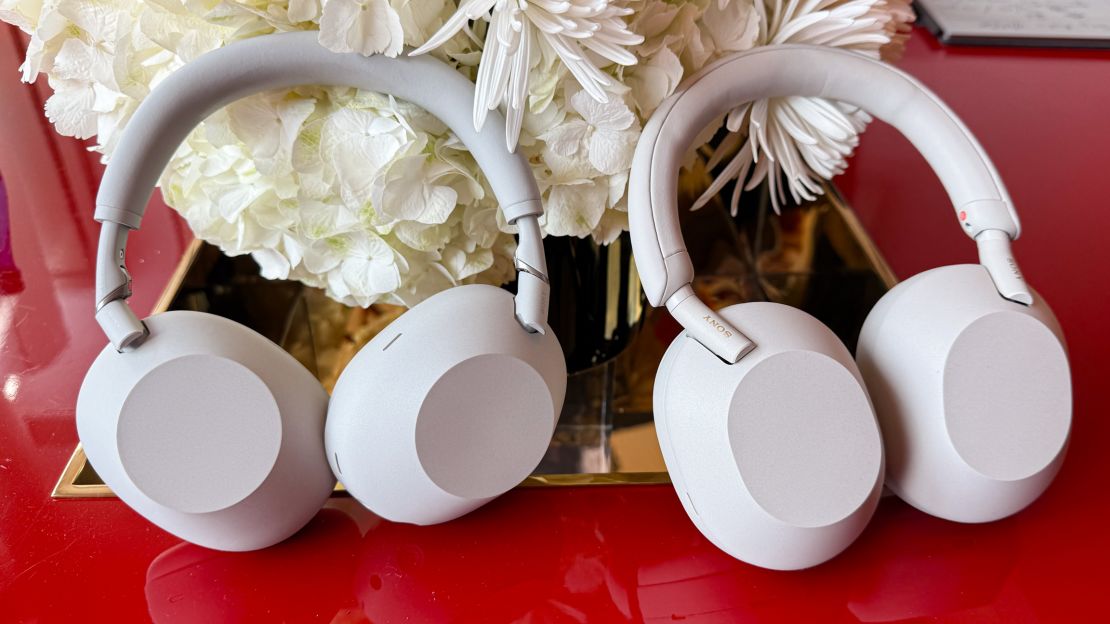
But considering the economy at the moment, I understand how some folks will blanch at that price. If you want decent Sony over-ear headphones for under $200, check out the Sony Ult Wear headphones.
The app is bad, and special features are a mixed bag
Tech companies earn some tough love on occasion, and I’m here to give some to the team behind Sony’s consumer audio devices. In 2025, no company should be shipping an app that looks this old and jumbled. For example, the main tab of the Sony app places a bunch of its settings within easy reach, but then has a button called “Device settings” that opens up a menu that has three sections of its own: sound, system and services. Here, you’ll find some of the settings you’ve already seen, like Speak-to-Chat, the equalizer and, frankly, too many other features to sort through unless you have spare time.
Is there any reason to use the app? Well, you need it to activate Sony’s Adaptive Sound Control feature, which can switch your noise canceling and ambient sound settings based on where you are or what you’re doing. So, if you’re at home or sitting still, it’ll keep ANC on, and then turn ambient mode on when you’re walking out and about, and need to have a greater awareness of what’s going on around you. It works fine enough, and it will be valuable if you need the extra awareness in public, but I wouldn’t really use these headphones for running (one of the motions it can detect), as designs like these aren’t made for sweat resistance.
If you enable Speak-to-Chat, the audio you’re listening to will automatically get quieter when the headphones hear someone talking. I almost wrote this off immediately because it means you can’t sing along with your tunes, though a coworker rightly noted this could make it easier for a loved one at home to get your attention. I just wouldn’t enable it in public, because this feature activated accidentally when my video editor was talking to me on the street.
You also get touch controls on the right ear cup, including double-tap to pause and swipe up and down to adjust volume. Additionally, you can press your palm on the right ear cup to enable Transparency mode when you need to hear someone or something more clearly. This worked well in my testing, and it’s a great way to listen for announcements on the subway. The volume up and down swipe gesture on the right ear cup, however, requires more presses than I’d like, making me miss the dedicated volume controls on the Bose QC Ultra and AirPods Max.
I miss the perks of Apple’s integration
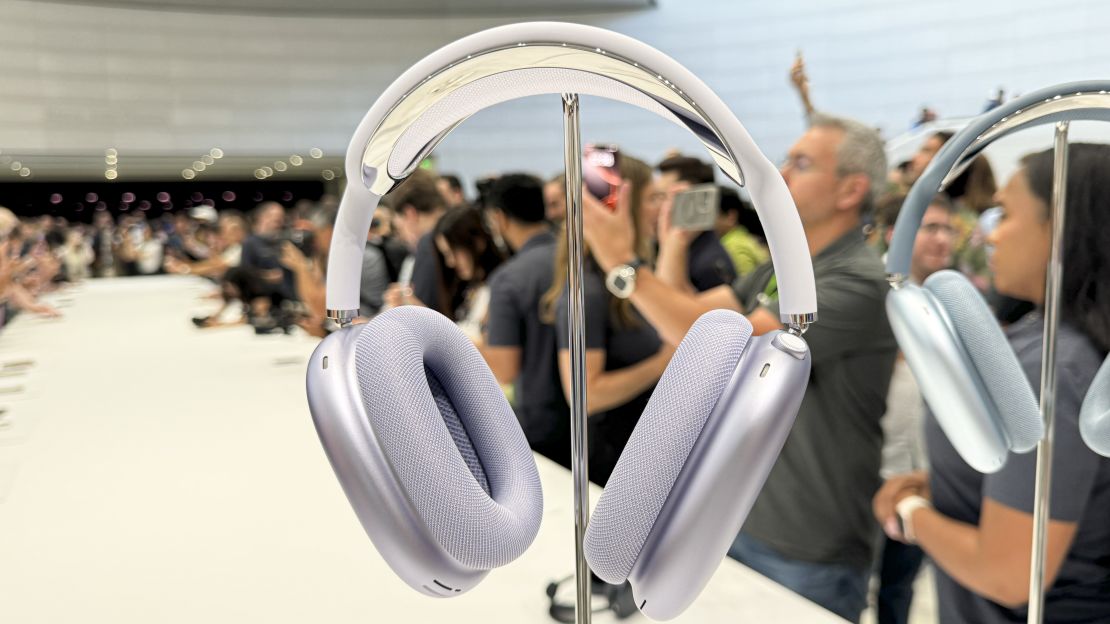
Sony’s got strong wearing detection, which means your favorite songs and podcasts will pause when you remove the headphones. But for someone like me who is downright spoiled by the Apple ecosystem integrations, I’m slightly annoyed that simply removing the XM6 doesn’t disconnect them from my phone. For example, when I stood up from my desk to take a break and put my the XM6 down, the latest episode of “The Besties” video game review podcast paused, which is great. But when I hit “play” in my podcatcher, the audio resumed on the headphones and not my phone’s speaker as I’d wanted it to.
That said, the XM6 support multi-device pairing for simultaneous connections, while Apple’s AirPods only go from one device to the other.
Bottom line
So, should you buy the XM6? Well, since the XM3, XM4 and XM5 are pretty universally adored, folks who’ve already bought into the Sony noise-canceling headphones economy probably don’t need to rush to upgrade. Yes, this year sees Sony elevating its sound quality and noise cancellation, as well as improving on the case and design of the XM5, but I’m not sure that’s enough to clear $450 in your budget.
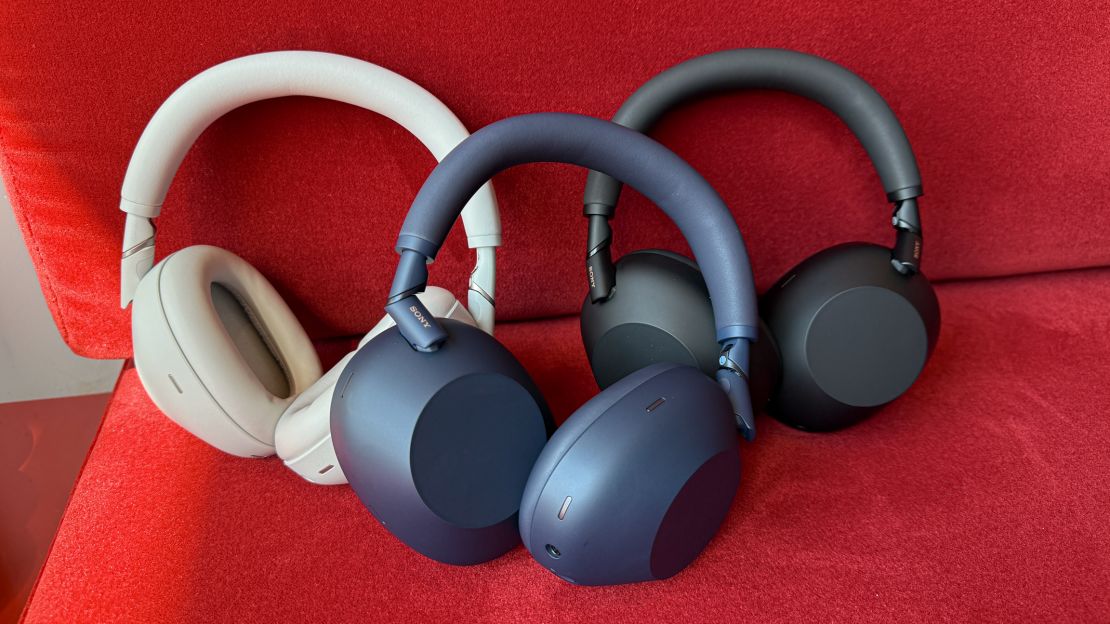
Those with the AirPods Max, which have stayed the same except for new colors and the USB-C port in last year’s refresh, will love Sony’s lighter design and may notice the superior noise cancellation. You’ll just be giving up the convenience that automatic pairing delivers (living in the Apple ecosystem pays off). Oh, and Sony’s case is loads better. I don’t know if anyone with a recent pair of Bose ANC headphones would need to upgrade if their pair is still working well, as the gap between sound quality and noise cancellation doesn’t merit spending another $450 if your gear still works.
But if your older pair is aging poorly or you’ve been waiting to get a pair of premium noise-canceling headphones, you should just get the Sony XM6. They’re great, if not the best, at everything that truly matters. And as someone who practically lives in the Apple ecosystem with most of his tech, I’m truly impressed by how the Sony XM6 combine sound quality, noise canceling and a great case to pull me away from the AirPods Max.




































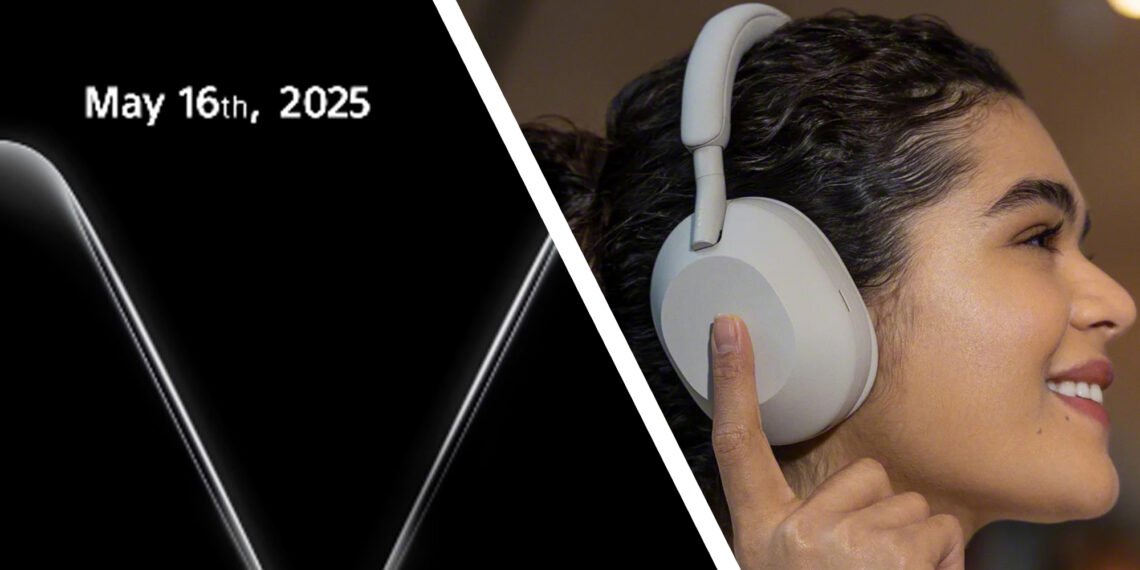

Comments 1